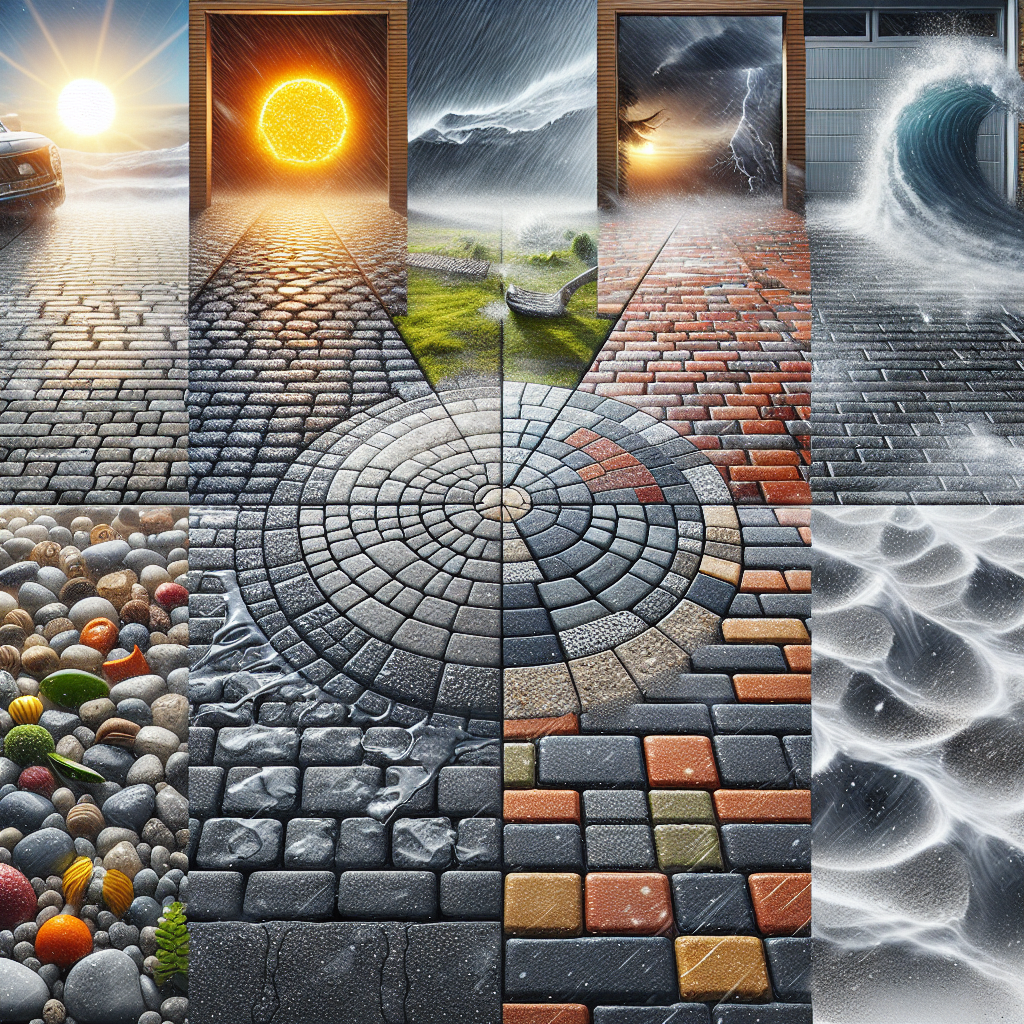When it comes to enhancing the curb appeal and functionality of your property, selecting the right driveway material is crucial. Your driveway is more than just a place to park your car; it’s an extension of your home that endures various weather conditions, foot traffic, and vehicle use. With so many options available, how do you choose the materials that will best withstand the test of time? Let’s explore the most popular driveway materials, their benefits, and how they perform in diverse weather conditions.
Understanding Your Climate and Environment
Before diving into specific materials, it’s essential to consider your local climate. Rain, snow, intense heat, and fluctuating temperatures all impact the longevity and performance of driveway materials. For instance, hot climates may require materials that can handle extreme heat without cracking, while colder regions will benefit from materials resistant to freeze-thaw cycles. Understanding your environment is the first step in making a well-informed decision.
Popular Driveway Materials
1. Asphalt: Affordable and Durable
Asphalt is one of the most commonly used materials for driveways. It’s affordable, easy to install, and relatively low maintenance. Asphalt works well in various climates but is particularly effective in colder regions where snow and ice are prevalent. However, it can soften in extreme heat, leading to an uneven surface. Regular sealing, approximately every 3-5 years, can extend the life of an asphalt driveway significantly.
2. Concrete: Strength and Versatility
Concrete driveways are renowned for their durability and strength. They can withstand heavy loads, making them an excellent choice for households with multiple vehicles. Concrete offers versatility in design; it can be stamped or colored to mimic other materials such as brick or stone. While concrete fares well in warm climates, it can crack in extremely cold weather unless proper measures are taken, such as using additives that improve freeze resistance.
3. Gravel: A Classic and Affordable Choice
If you’re looking for a budget-friendly option that offers a rustic charm, gravel may be the perfect fit. Gravel driveways are easy to install and come in various styles, allowing homeowners to customize their look. However, gravel requires more maintenance, as it can degrade and wash away with heavy rain. For longevity, consider using a geotextile fabric underneath to keep the gravel in place and improve drainage.
4. Pavers: Aesthetic Appeal Meets Durability
Pavers have gained popularity for their superior aesthetic appeal and durability. Made from materials like brick, stone, or concrete, pavers provide a stylish finish that can enhance any landscape. They are highly resistant to weathering, but installation can be labor-intensive and typically costs more upfront than other materials. However, since individual pavers can be replaced if damaged, they can offer long-term value.
Factors to Consider in Your Decision
Maintenance Requirements
No driveway material is completely maintenance-free, so consider how much time and effort you’re willing to invest. Asphalt, for example, requires periodic sealing, while gravel may need re-stabilization and replenishing. Concrete is low-maintenance but should be sealed every few years to prevent staining.
Aesthetics and Property Value
Your driveway should complement the overall aesthetic of your home. Take into consideration the style and color of your home, as well as local architectural trends. Driveways made from attractive materials can increase your property value, so don’t overlook the visual aspect.
Environmental Impact
More homeowners are considering sustainable options when it comes to construction and landscaping. Some materials, such as permeable pavers, allow water to pass through and reduce runoff, helping to prevent flooding and soil erosion. Explore eco-friendly options tailored to your environmental consciousness and local regulations.
The Final Decision: Weighing Cost versus Longevity
Ultimately, choosing the right driveway material depends on balancing initial costs against longevity and maintenance. While it may be tempting to opt for the least expensive option, consider the long-term implications. Materials that require less frequent replacement or repair may prove more cost-effective in the long run.
Conclusion: Invest in the Future
Investing in the right driveway material is a decision that will pay dividends for years to come. By understanding your local climate, assessing your aesthetic desires, and weighing the pros and cons of each material, you’ll be able to choose a driveway that not only stands the test of time but also enhances your home’s value and beauty. Weathering the elements starts with thoughtful choices—make a lasting impression with the perfect driveway!


